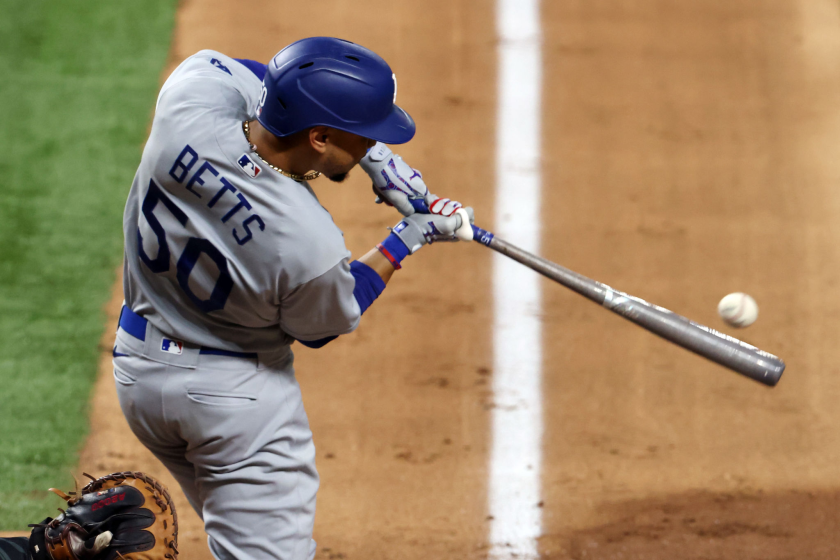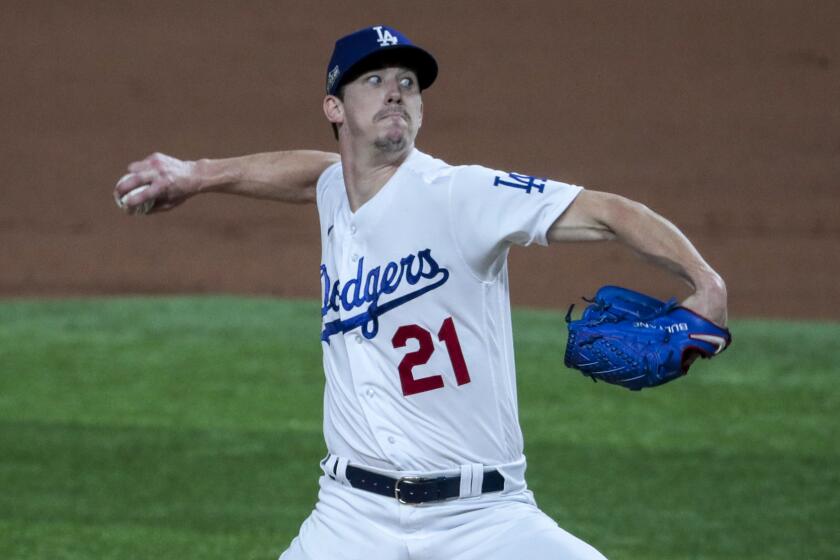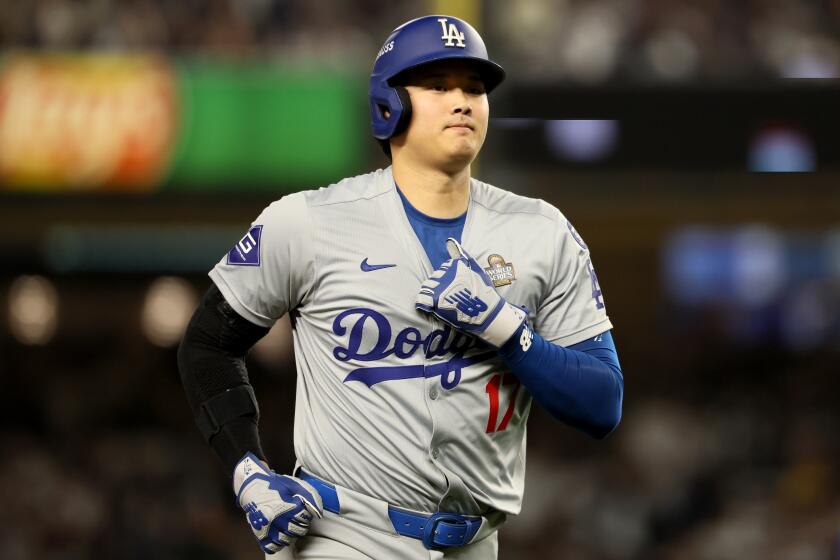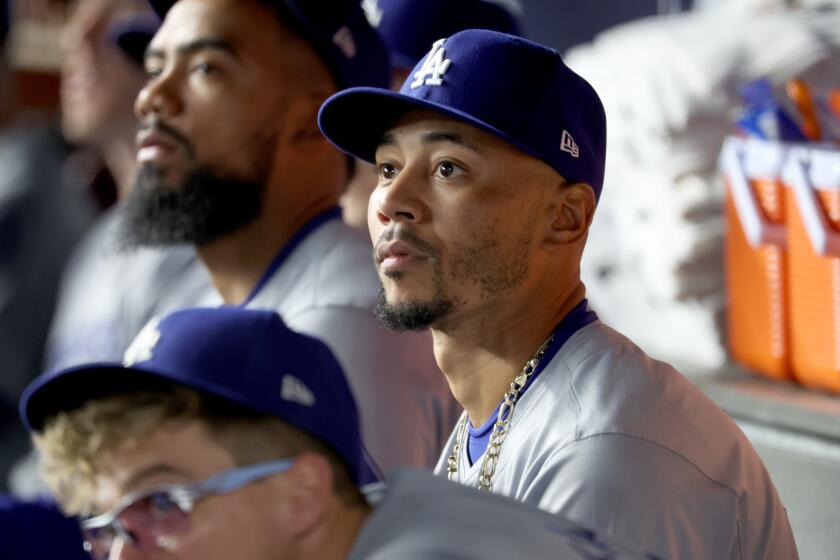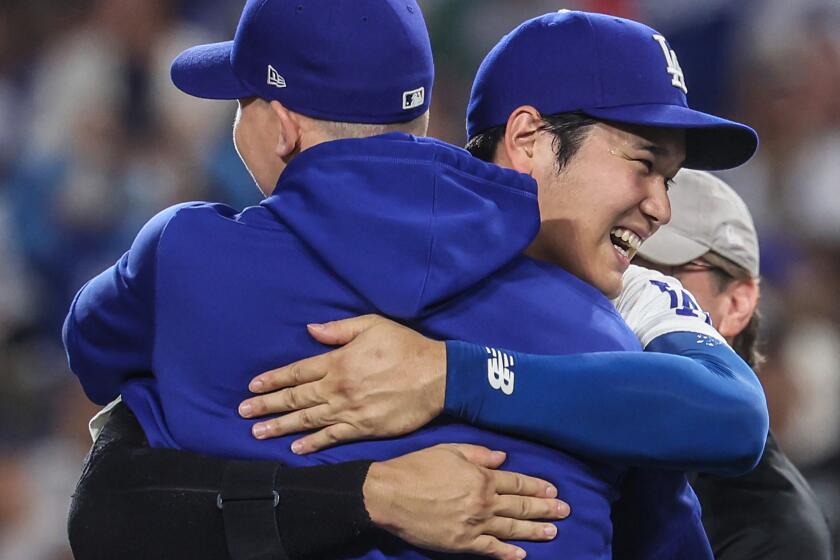Dodgers can win without a traditional closer. Look at the last three champions
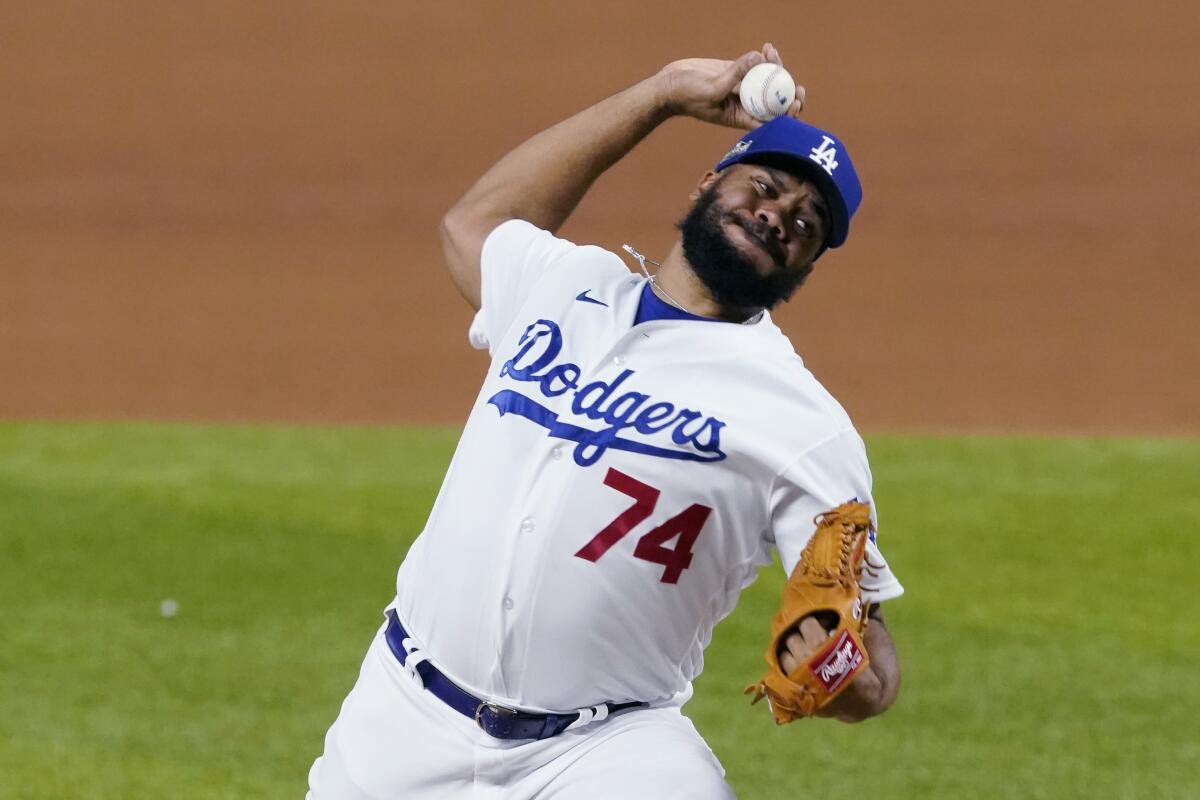
Joe Torre and Joe Girardi rarely stressed over ninth-inning pitching decisions in the 16 years they guided the New York Yankees to the playoffs from 1996 to 2012.
Both had the good fortune of managing the best closer in history, Hall of Famer Mariano Rivera, the cut-fastball specialist who went 8-1 with an 0.70 ERA and converted 42 of 47 save opportunities in 96 postseason games for a franchise that won World Series titles in 1996, 1998, 1999, 2000 and 2009.
Dodgers manager Dave Roberts will have no such luxury as he navigates a best-of-seven National League Championship Series against the Atlanta Braves, which opens Monday night at Globe Life Field in Arlington, Texas, and — he hopes — an eventual World Series.
Kenley Jansen’s struggles have turned what used to be a ninth-inning exclamation point into a question mark, forcing Roberts to base late-game pitching decisions on matchups instead of slotting relievers into defined roles.
But Roberts need not fret. As the Houston Astros, Boston Red Sox and Washington Nationals proved in the last three Octobers, teams can win championships without lock-down closers and without sticking to traditional bullpen blueprints.
Learning from past playoff failures, the Dodgers strike out less and do more with the bat than hit homers. Star addition Mookie Betts is a catalyst.
All it takes is for pitchers to shelve their egos and for flexibility and ingenuity on the part of the manager, pitching coach and front office. By necessity or design, these have become the most important ingredients of playoff bullpen management.
“I think, with our guys, it’s understanding what hitters they’re gonna get, and whatever the leverage [situation], they’re gonna be ready,” Roberts said. “They’re all a big part of what we’re trying to do, and their buy-in is important. Now, it’s about winning games. Everyone in that clubhouse understands that.”
The good news for Roberts is that, unlike with his last four playoff teams, he has a deep stable of capable relievers to compensate for Jansen’s deficiencies.
He can lean on hard-throwing right-handers Blake Treinen and Brusdar Graterol to nail down the final six outs. Joe Kelly, Pedro Baez and Dylan Floro are solid options from the right side, as are Jake McGee, Adam Kolarek and Victor Gonzalez from the left side.
He can use left-hander Julio Urías, who made 10 regular-season starts but threw five one-hit relief innings in the NL Division Series-clinching win over San Diego, as a swingman, depending on the team’s needs.
“We have a great bullpen here,” said Kelly, who replaced the wobbly Jansen and got the final out of a 6-5 NLDS Game 2 win over the Padres. “I’ve said it before, and I’ll say it again, it’s the best bullpen I’ve been a part of, and I have a World Series ring.”
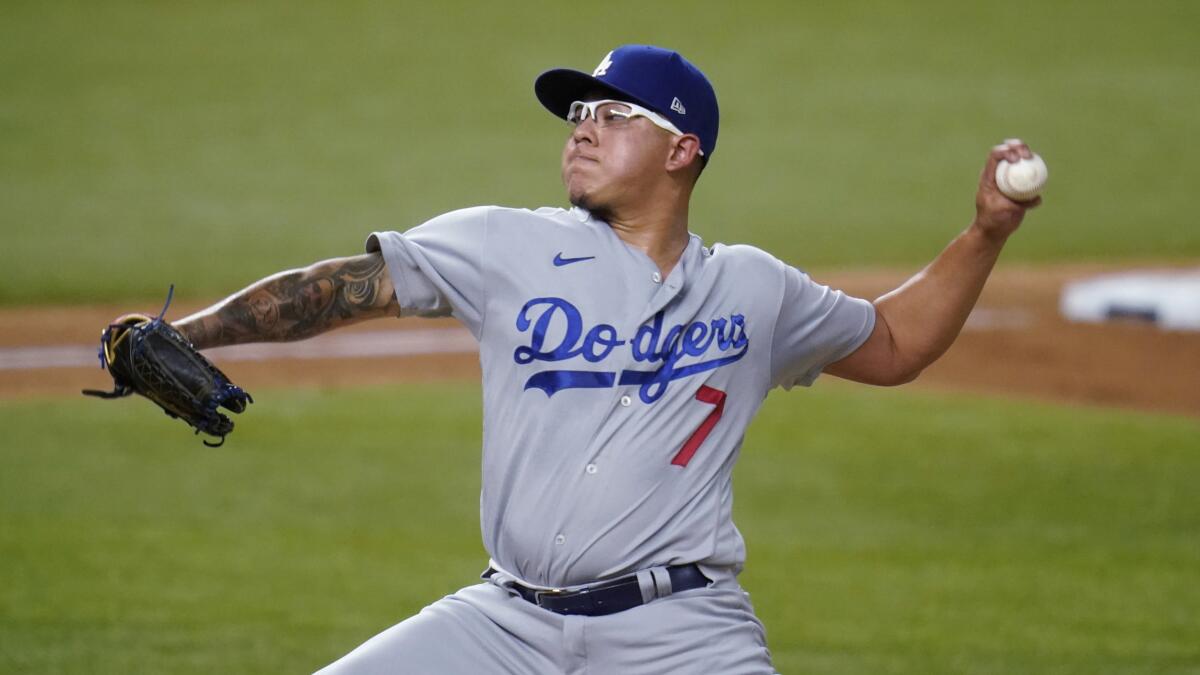
Kelly won that ring with the 2018 Red Sox, who beat the Yankees and Astros in the American League playoffs and the Dodgers in the World Series in spite of their closer, not because of him.
Craig Kimbrel missed most of spring training in 2018 to be with his infant daughter, who had undergone two heart surgeries. He went 5-1 with a 2.74 ERA and 42 saves that season but was not as dominant as he was in 2017, when he went 5-0 with a 1.43 ERA and 35 saves.
“His stuff was fine; he just had command issues,” said Ron Roenicke, Boston’s bench coach under manager Alex Cora in 2018. “Off and on, he’d be really good, but he didn’t have that period of time where he could get locked in and maintain it for an entire season.”
Kimbrel notched five saves in the first two playoff rounds but gave up runs in four of the five games. By the World Series, starter Nathan Eovaldi had joined Kelly and Ryan Brasier in key setup roles.
David Price, who started Games 2 and 5 of the World Series, skipped his between-starts workout to pitch two-thirds of an inning in Game 3, a 3-2, 18-inning loss.
Kimbrel gave up a two-run homer to Enrique Hernandez in a 9-6 Game 4 win. Chris Sale got the final three outs of the Game 5 clincher, after throwing four innings in his Game 1 start.
“Alex talked to Kimbrel and told him what we were thinking,” Roenicke said. “And Craig was like, ‘Great, whatever we can do to win.’ [Cora] let the other guys know, just be ready to pitch. Things were going so well, so no one cared about anything. It’s when you start losing, then all of a sudden you start hearing a little chatter, that guys are not happy. But we didn’t run into that.”
Roenicke said Cora’s experience as Houston’s bench coach in 2017 emboldened him to adjust his October bullpen in 2018.
Astros closer Ken Giles was so bad in the first two rounds of 2017 — he gave up five runs and eight hits, including two homers, in six innings of five appearances — that Houston went without a closer in the World Series win over the Dodgers.
Starters Lance McCullers (5-1/3 innings) and Brad Peacock (3-2/3) covered all of a 5-3 Game 3 win. Starter Charlie Morton pitched the final four innings of a 5-1 Game 7 win.
The Nationals had one of baseball’s worst bullpens in 2019. Though they acquired eventual October closer Daniel Hudson at the trade deadline, they had only one reliable setup man: left-hander Sean Doolittle.
Manager Davey Martinez used starters Max Scherzer, once, and Patrick Corbin, twice, in relief in a five-game division series win over the Dodgers. Corbin made one start and two relief appearances — including three scoreless innings in Game 7 — of a seven-game World Series win over Houston.
“In the postseason, every inning is a closing opportunity, every run is big, so I think that mentality [of traditional bullpen roles] kind of goes out the window,” Kelly said. “There’s always starters who are hot, and you ride the hot hand.”
Dodgers manager Dave Roberts is undecided about who will start Games 3, 4 and 5, but it will be some combination of Dustin May, Tony Gonsolin and Julio Urías.
The potential for seven games in seven days could preclude Roberts and Atlanta manager Brian Snitker from deploying starters in relief in the NLCS.
Roberts ruled out the idea completely for Walker Buehler, who is dealing with a blister on his index finger, and Clayton Kershaw, who had a disastrous relief outing last October, giving up score-tying homers to Anthony Rendon and Juan Soto in Game 5 of the NLDS. But Urías — and possibly Dustin May and Tony Gonsolin — could start and relieve.
“Absolutely, he’s gonna pitch very meaningful innings,” Roberts said of Urías. “Julio has done it. He’s had success in all roles, so it makes us feel more confident.”
There will be more opportunities to use starters in relief in the World Series, which will include the usual two off days. For the NLCS, Roberts likely will rely on a traditional five-man rotation and a bullpen filled with ready, willing and able relievers.
“You try to optimize your talent, your arms and matchups to get 27 outs, however we decide to do that,” Roberts said. “There’s a lot that goes into it, but when you’re talking about the options we have, they’re all pretty dang good.”
More to Read
Are you a true-blue fan?
Get our Dodgers Dugout newsletter for insights, news and much more.
You may occasionally receive promotional content from the Los Angeles Times.

